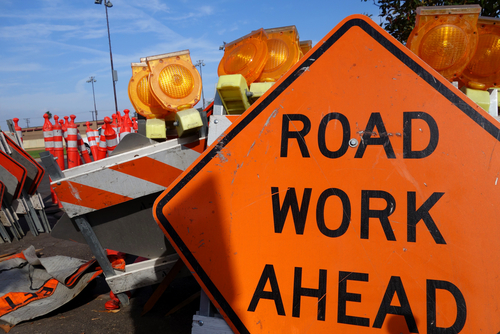
As United States lawmakers grapple with how to address much-needed infrastructure investment, House Republican Committee leaders introduced their own proposal this week in the form of the more than $400 billion, five-year STARTER Act 2.0.
STARTER, or Surface Transportation Advanced through Reform, Technology, & Efficient Review, is a less costly plan than other proposals currently being considered in Washington. The Biden White House offered a plan that went as high as $2.2 trillion. Republican counterparts in the Senate offered a more modest $568 billion plan, though under the leadership of U.S. Sen. Shelley Moore Capito (R-WV), they continue to negotiate on an infrastructure package with the White House.
Still, the plan proposed by House Transportation and Infrastructure Committee Ranking Member Sam Graves (R-MO) and his colleagues would offer the largest percentage increase for federal highway, transit, motor carrier and highway safety programs in approximately 25 years. It would stretch this funding over five years, and is based upon similar legislation introduced last year.
“I strongly believe that the path to improving America’s infrastructure is through partnership – not partisanship,” Graves said. “Republicans want to work together on bipartisan infrastructure solutions, but in order to reach that goal, key principles must be addressed in this process. The STARTER Act 2.0 puts forward our Republican principles; provides historic levels of funding for our roads, bridges, and other surface transportation infrastructure; and ensures that we invest those funds wisely and efficiently. Our bill focuses on the core infrastructure that helps move people and goods through our communities every single day, cuts red tape that holds up project construction, and gets resources into the hands of our states and locals with as few strings attached as possible.”
Notably, the legislation would also prioritize proven programs and focus on safety and efficiency among highways and bridges, to better facilitate commerce. Major investments in small and rural communities would be levied, with the recognition that more than 70 percent of public road mileage goes through these areas. It would seek to muscle Chinese interests out of the transportation sector.
Flexibility is a large highlight of the package, as it would grant states more decision-making authority for what to do with allocated funds as they address individual infrastructure needs. New grants and accompanying restrictions would be applied for expenditures, while the Highway Trust Fund (HTF) would be empowered to provide contracts regarding highway safety, public lands and historic sites, as well as to give states the ability to undertake aggregate spending on highway safety activities to meet the federal share of any other project.
The legislation also would help provide a long-term solution to sustain the HTF and shift it away from reliance on fuel taxes. This would be supported by moving the HTF to a user-pay, vehicle-miles-traveled (VMT) system. Under the legislation, states would be encouraged to develop such VMT fees in pilot programs, while enhancing data collection and analysis of such systems.
“Streamlining the federal permitting and environmental review process absolutely must be a part of an infrastructure package,” said Highways and Transit Subcommittee Ranking Member Rodney Davis (R-IL), a cosponsor of the bill. “That’s why the One Federal Decision Act is a key part of our House Republican infrastructure proposal, the STARTER Act 2.0. Cutting red tape that delays infrastructure project delivery will save taxpayer dollars and complete projects more quickly, while still protecting the environment.”
More than 20 years have passed without real work to address traffic problems or roads, stressed U.S. Rep. Garret Graves (R-LA), cosponsor and Ranking Member of the Select Committee on the Climate Crisis and of the Subcommittee on Aviation. He defended the smaller budget put forth by the House proposal than its counterparts by arguing that pumping more money into a broadened definition of infrastructure would just result in waste.
“This legislation streamlines the way that projects are designed and built by focusing on turning dirt and making solutions happen,” Graves said. “By cutting the fat, red tape and bureaucracy, your tax dollars can actually work for you rather than against you. This would result in a significant increase in available funding so that the issues our parents and grandparents complained about actually get fixed, and the transportation investments that our children and grandchildren need can become reality too.”
Lawmakers said the bill also prioritizes building a resilient transit system. The railroad industry has responded with enthusiasm for the Republican proposal.
“Consensus around the need for significant, forward-looking infrastructure investments continues to gain speed,” Ian Jefferies, Association of American Railroads president and CEO, said. “The newly introduced STARTER Act 2.0 is a thoughtful effort to responsibly address our current funding challenges, improve project delivery and make meaningful progress on a vehicle-miles-traveled fee, which could provide more sustainable funding for the Highway Trust Fund. Railroads encourage members of Congress and the administration to keep working toward a bipartisan solution that will help our economy compete today and in the future.”